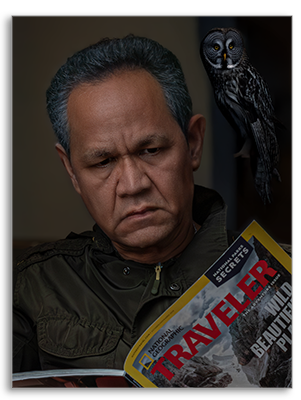BIO
René Sing Brooks is a Nicaraguan-born writer, photographer, and videographer from Bluefields, the capital of Nicaragua’s Southern Caribbean Coast. He came to the United States in 1992 at the invitation of SUNY Buffalo to participate in a one-year oral history program. This experience cemented his lifelong commitment to storytelling and social advocacy.
From 1993 to 1995, he worked with the Coalition for Economic Survival, a renowned tenant-rights organization in Los Angeles. In 2002, he joined the Fortune Society in New York, where he coordinated the Education Program’s computer literacy initiative. Over the course of his 14-year tenure, he developed and led a Multimedia Workshop that served more than 140 participants, merging technology, creativity, and personal narrative.
Sing Brooks’ work has appeared with OpenStax at Rice University, AM NEW YORK, Bronx Times, and the Pulitzer Center, where he was selected as a reporting fellow in 2020. He is a Wagner Archives alumnus, a graduate of LaGuardia Community College’s Photography Program, and a 2023 participant in the Lewis Latimer House Museum’s Writing on Race & Immigration workshop.
He currently lives in Jackson Heights, New York, with his partner, Priscilla.
ARTIST STATEMENT
I am a multiethnic, pluricultural writer, photographer, and videographer born in Nicaragua. My practice is guided by ancestral voices whose echoes I interpret, translate, and weave into my work. Through them, I explore the socio-political and cultural forces that shape our lived experiences.
How do we navigate our presence in this world? What compositions define our being? How might shared stories reveal truths that free us?
As an immigrant and a man of color living within systems of oppression—systems I am both shaped by and implicated in—my current work examines the intimate and collective dimensions of resistance, vulnerability, and survival. Through literary and visual poetics, I consider how these forces influence our relationships with ourselves, with each other, and with the communities we create.
Ultimately, my work seeks to illuminate the barriers that obscure genuine connection, the fractures that hinder solidarity, and the challenges we face in cultivating life-affirming ways to confront, disrupt, and transcend the harms we knowingly or unknowingly perpetuate..
